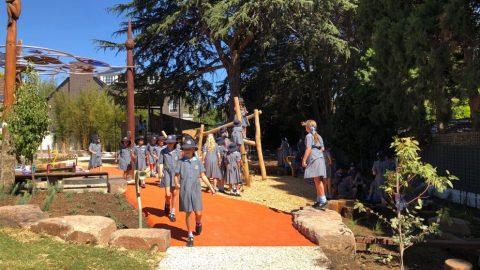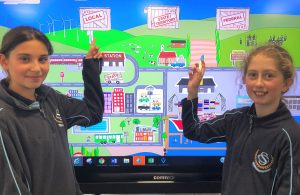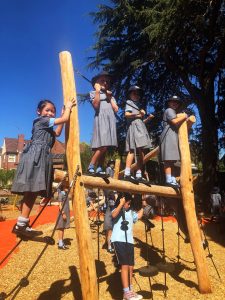The Importance of Play

“Play is critical for children’s development because it provides time and space for children to explore and gain skills needed for adult life.” – Pathways.org, 2015.
During play time, especially when children are engaging in unstructured play, they explore, practise and develop the skills of: problem solving, negotiation and compromise, flexible thinking, how to identify and manage their emotions, managing their fears and interacting with others. Much learning takes place, and while this learning may not be apparent to those observing, children are trying out and gradually building their repertoire of skills.
Play is a safe place to try out new ways of thinking, mimic what they have observed, pretend to be someone else, find different ways to respond to others, sometimes be the person they want to be but are not there yet. Shy, timid children might pretend to be a super hero, trying out what it is like to be brave and confident. When children do this, they are experimenting with other personas to see how they feel.
Play in the natural environment supports multiple development domains in every major way – intellectually, emotionally, socially and physically. Natural play spaces expose students to new elements and new ways of play and thinking. With commercial play equipment, the use of the equipment is obvious, and children’s creativity is not challenged; however, in natural play spaces, children learn to view their environment for its potential for play and imagination and creativity skills are stimulated.
Play can be unstructured with open-ended rules, where children learn to be adaptive to the changes in play as they take place. On the other hand, as children move into more structured play such as sports, they learn about rules, working as a team, winning, losing, commitment and responsibility.
Unfortunately, the amount of time in which children play has seen significant declines. Social changes and technologies have had a great impact on the way children play and on the amount of time they play. Children now spend more of their free time on devices or watching television in the home, and their social interactions may be more online than in the playground. They now spend more free time indoors than outdoors. Timing how much time children spend playing outdoors each week is a good exercise for parents to undertake.

The effects of not having sufficient play time and outside play time are significant. Children who play outside are usually continually moving while those in front of a screen are not. The health benefits of outside play are substantial. The social impacts of reduced play is that children have less time to interact with others, or to develop and practise the skills they need later in life.
Ms Karen McArdle, Head of Junior School
Source:
https://pathways.org/blog/why-is-play-important/
Year 6 Unit of Investigation – Civics and Citizenship
In preparation for the Year 6 Canberra study tour next week, students have been learning about the purpose of key institutions and levels of government in Australia’s democracy.
Over the term, students will be inquiring into the values that underpin Australia’s democracy and the importance of the electoral process. Students have been researching information that they can build upon whilst visiting key sites in Australia’s capital.

Saachi Hogerhorst and Poppy Maling research the three levels of government in Australia in the lead up to their study tour to Canberra.
“Recently I have begun to learn about politics in Australia. I have learnt about the three levels of government; local, state and federal, and their different roles. I am intrigued to learn about the electoral process and about how different prime ministers have made a difference.” – Saachi Hogerhorst.
“Although we have just begun learning about politics, we have already learnt about the three levels of government. Federal government is responsible for matters that affect all of Australia, such as defence, immigration and currency. State government is responsible for major roads, energy and hospitals. Local government is responsible for local roads, parks, waste collection and sewage. I am really looking forward to learning about how our country is run on our study tour of Canberra.” – Poppy Maling.



